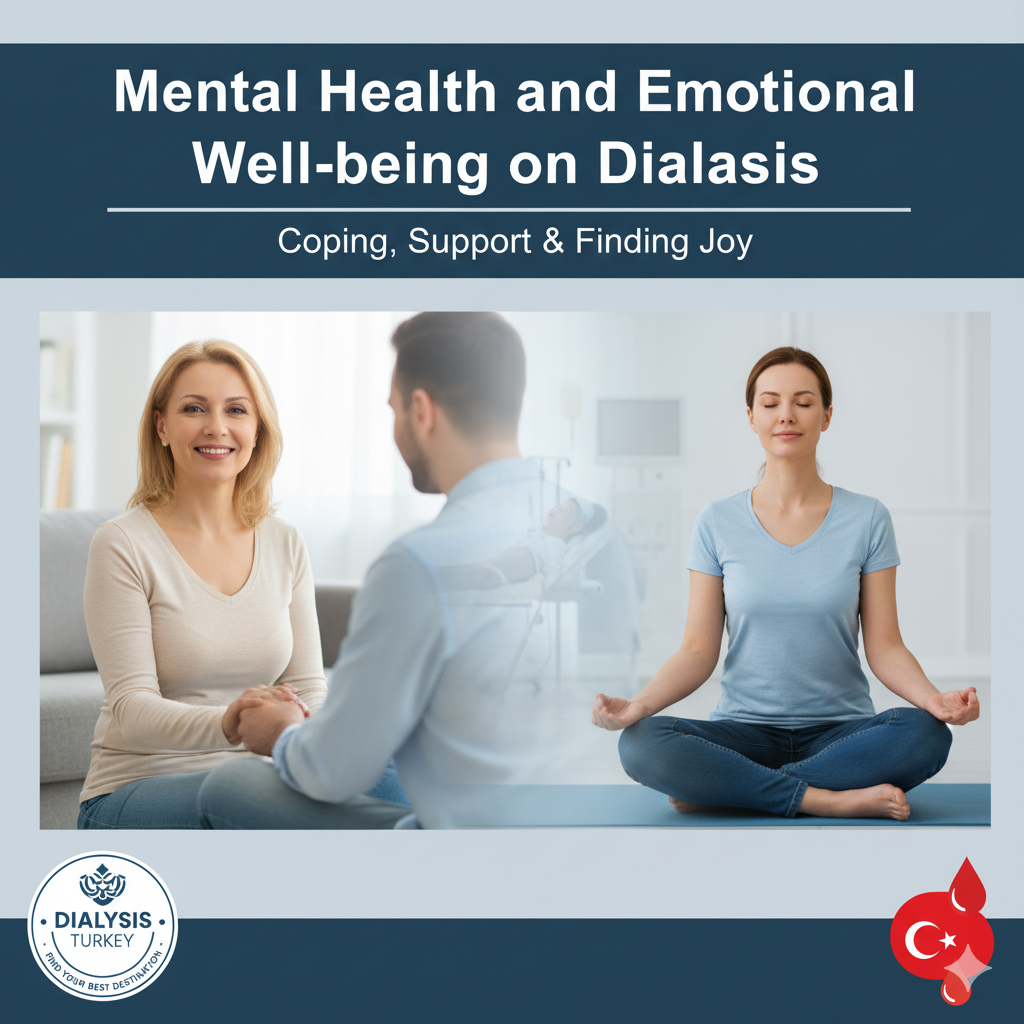Mental Health and Emotional Well-being on Dialysis
The emotional and psychological impact of dialysis can be as significant as the physical challenges. Depression, anxiety, grief, and stress are common among dialysis patients facing the reality of chronic illness, lifestyle changes, and uncertainty about the future. Acknowledging these feelings and actively addressing mental health is not a sign of weakness but a crucial part of comprehensive care. Taking care of your emotional well-being directly impacts your physical health, treatment adherence, and overall quality of life.
Common Emotional Challenges
Depression affects approximately 20-30% of dialysis patients, much higher than the general population. Symptoms include persistent sadness, loss of interest in activities, changes in sleep or appetite, fatigue, difficulty concentrating, and thoughts of hopelessness. Anxiety may manifest as excessive worry about health, treatment, or the future, along with physical symptoms like rapid heartbeat, sweating, or panic attacks. Many patients experience grief over the loss of their previous life, health, independence, or dreams. Anger and frustration about the unfairness of illness are natural responses. Fear about mortality, complications, or becoming a burden on others is common.
Recognizing When to Seek Help
Contact your healthcare team or a mental health professional if you experience:
• Persistent sadness or hopelessness lasting more than two weeks
• Loss of interest in all activities you once enjoyed
• Thoughts of self-harm or suicide
• Difficulty sleeping or sleeping too much
• Inability to cope with daily activities
• Increased irritability or anger affecting relationships
• Skipping dialysis treatments due to emotional distress
Coping Strategies
Effective coping strategies can significantly improve emotional well-being. Acknowledge and express your feelings rather than suppressing them. Talk to trusted friends, family, or counselors about your struggles. Practice stress-reduction techniques like deep breathing, progressive muscle relaxation, or meditation. Maintain social connections even when you do not feel like it. Engage in activities that bring joy or meaning, no matter how small. Keep a journal to process emotions and track patterns. Set realistic expectations for yourself and celebrate small accomplishments. Focus on what you can control rather than what you cannot. Practice gratitude by noting positive aspects of your life daily.
Professional Mental Health Support
Do not hesitate to seek professional help. Nephrologists can screen for depression and refer you to appropriate resources. Social workers at dialysis centers provide counseling and connect patients with community resources. Psychologists and therapists specializing in chronic illness can offer targeted strategies. Psychiatrists can prescribe and manage medications for depression or anxiety when needed. Many centers offer support groups led by mental health professionals. Telehealth options make therapy more accessible. Remember that seeking mental health care is as important as treating your physical health.
The Role of Social Support
Strong social support networks significantly improve outcomes and quality of life for dialysis patients. Family and friends provide practical help, emotional comfort, and companionship. Be open about your needs and limitations with loved ones. Allow people to help you in specific ways that are truly useful. Join patient support groups to connect with others who understand your experience firsthand. Online communities offer 24/7 support and information sharing. Consider peer mentoring programs where experienced patients support newcomers. Maintain friendships and social activities to prevent isolation. Do not let pride or embarrassment prevent you from accepting support.
Mindfulness and Meditation
Mindfulness practices help patients cope with the stress and uncertainty of chronic illness. These techniques involve focusing attention on the present moment without judgment. Mindfulness reduces anxiety about the future and rumination about the past. Regular practice has been shown to decrease depression and improve quality of life in dialysis patients. Simple mindfulness exercises include focused breathing, body scans, and mindful walking. Many apps and online resources offer guided meditations specifically for people with chronic illness. Even a few minutes daily can provide benefits. Mindfulness during dialysis treatments can make the time pass more comfortably.
Finding Meaning and Purpose
Maintaining a sense of purpose is crucial for psychological well-being. Identify what gives your life meaning, whether relationships, spiritual beliefs, creative pursuits, or helping others. Set meaningful goals that are achievable within your circumstances. Pursue hobbies and interests that bring fulfillment. Consider volunteering or mentoring if you have the energy. Stay engaged with your community in whatever capacity possible. Reflect on your values and ensure your daily life aligns with what matters most to you. Remember that you are more than your illness. Your worth is not defined by your productivity or independence.
Hope and Resilience
Maintaining hope does not mean denying the challenges you face. It means believing that life can still hold positive experiences and that you have the strength to cope. Resilience, the ability to adapt to adversity, can be developed and strengthened over time. Focus on past challenges you have overcome to remind yourself of your strength. Connect with long-term dialysis patients who are living well to see what is possible. Celebrate small victories and progress. Allow yourself to dream and plan for the future. Stay informed about advances in treatment and potential future options like transplantation. Remember that your current situation is not your final destination.

